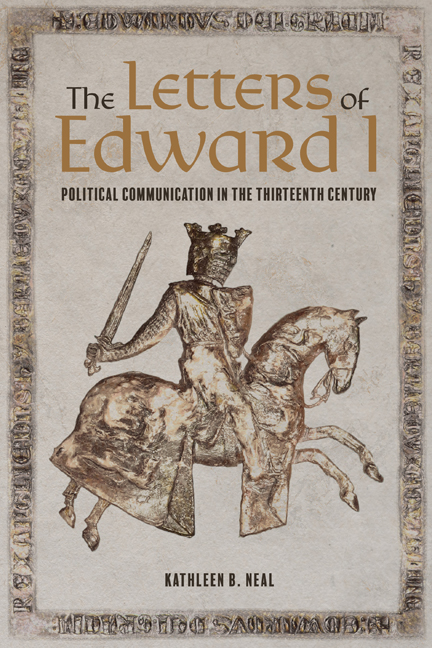Book contents
- Frontmatter
- Dedication
- Contents
- List of Illustrations
- Preface
- Abbreviations
- Introduction: Letters and the Language of Power
- 1 Royal Letters: The Authority of a Form
- 2 Rhetorical Refinement: Epistolary Editing and its Implications
- 3 Announcing the Message: Communities of Reception and Royal Ideology
- 4 ‘Dear Cousin’: Affect and Epistolarity beyond Borders
- 5 Keeping Friends Close: Strategies of Epistolary Alignment
- 6 Rhetoric Under Strain: Re-writing Royal Epistolarity
- Conclusion. Royal Epistolarity: The Voice of the King
- Appendix
- Bibliography
- Acknowledgements
- Index
4 - ‘Dear Cousin’: Affect and Epistolarity beyond Borders
Published online by Cambridge University Press: 09 February 2021
- Frontmatter
- Dedication
- Contents
- List of Illustrations
- Preface
- Abbreviations
- Introduction: Letters and the Language of Power
- 1 Royal Letters: The Authority of a Form
- 2 Rhetorical Refinement: Epistolary Editing and its Implications
- 3 Announcing the Message: Communities of Reception and Royal Ideology
- 4 ‘Dear Cousin’: Affect and Epistolarity beyond Borders
- 5 Keeping Friends Close: Strategies of Epistolary Alignment
- 6 Rhetoric Under Strain: Re-writing Royal Epistolarity
- Conclusion. Royal Epistolarity: The Voice of the King
- Appendix
- Bibliography
- Acknowledgements
- Index
Summary
The relational nature of epistolarity and its capacity to activate affective bonds made it an essential tool in all interactions where senders sought to extend influence beyond the strict limits of their jurisdiction. As Hengham Magna observed, a separate epistolary language was reserved for such contexts. Where kings could not command, they might ask and seek to influence. Royal asking, however, required careful management and selective direction in order to avoid giving an impression of weakness. Diplomacy was the pre-eminent example: it depended heavily upon interpersonal relationships and alliances because it required rulers to act and negotiate beyond the sphere of their own legislative authority. It obtained its ends by persuasion.
Diplomacy, evolving during Edward's lifetime towards a system of professional representatives, depended heavily on aristocratic networks of goodwill that cut across ‘national’ boundaries. In the relational logic of diplomacy, the intermarriage practised among European elites in the Middle Ages was an important strategic mechanism for perpetuating networks among families who needed to maintain avenues of negotiation and exchange. Kinship did not offer automatic preferment in matters to be discussed, but provided a structural foundation for selective amplification and activation of ‘affective’ bonds that might influence the goodwill of relevant parties, potentially facilitating desired outcomes. With friendship and gratitude, it was one of the powerful rhetorical mechanisms by which moral obligation could be imposed and goodwill encouraged beyond the borders of a sender's authority. This discourse was also adapted with varying success for use in domestic contexts where the king's vassals and officials were asked to perform services beyond the norm.
The English royal family was well positioned to exploit the opportunities of relational rhetoric in the diplomatic sphere. Generations of careful dynastic strategy connected Edward to most of the principal royal families of Europe, and many other senior aristocratic families within the kingdom of France and the quasi-independent principalities of the Low Countries and German lands. By the evidence of his extant correspondence, Edward did not call upon the entire network of his kinsmen and women as potential supporters and allies in diplomatic negotiations, but some received letters at important moments, and some became frequent correspondents, most notably his aunt, Marguerite of Provence, the dowager queen of France.
- Type
- Chapter
- Information
- The Letters of Edward IPolitical Communication in the Thirteenth Century, pp. 96 - 124Publisher: Boydell & BrewerPrint publication year: 2021



